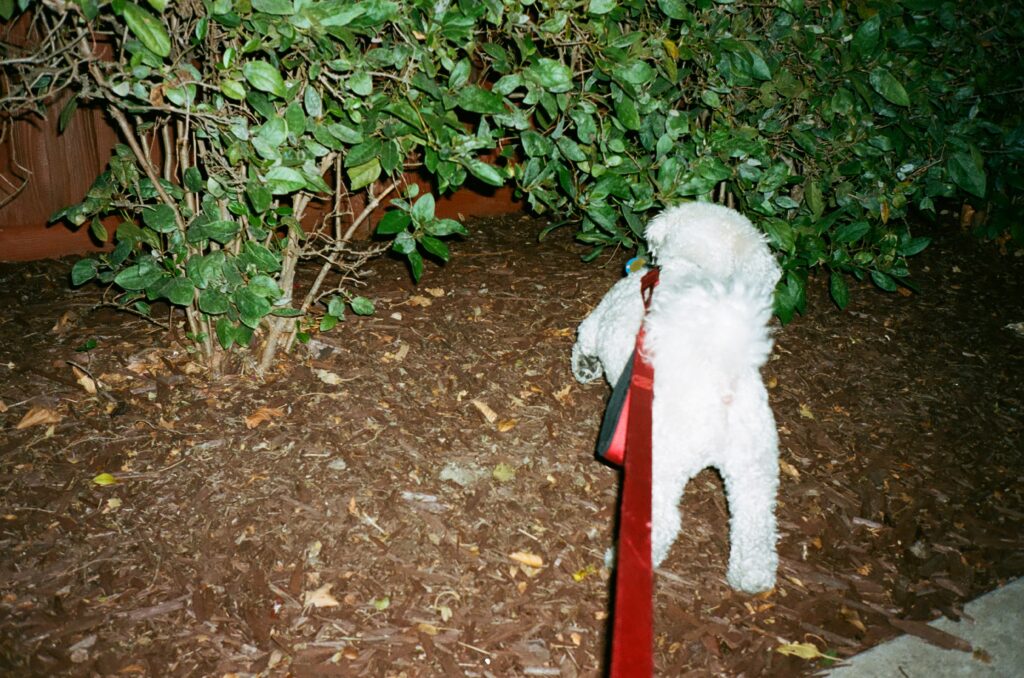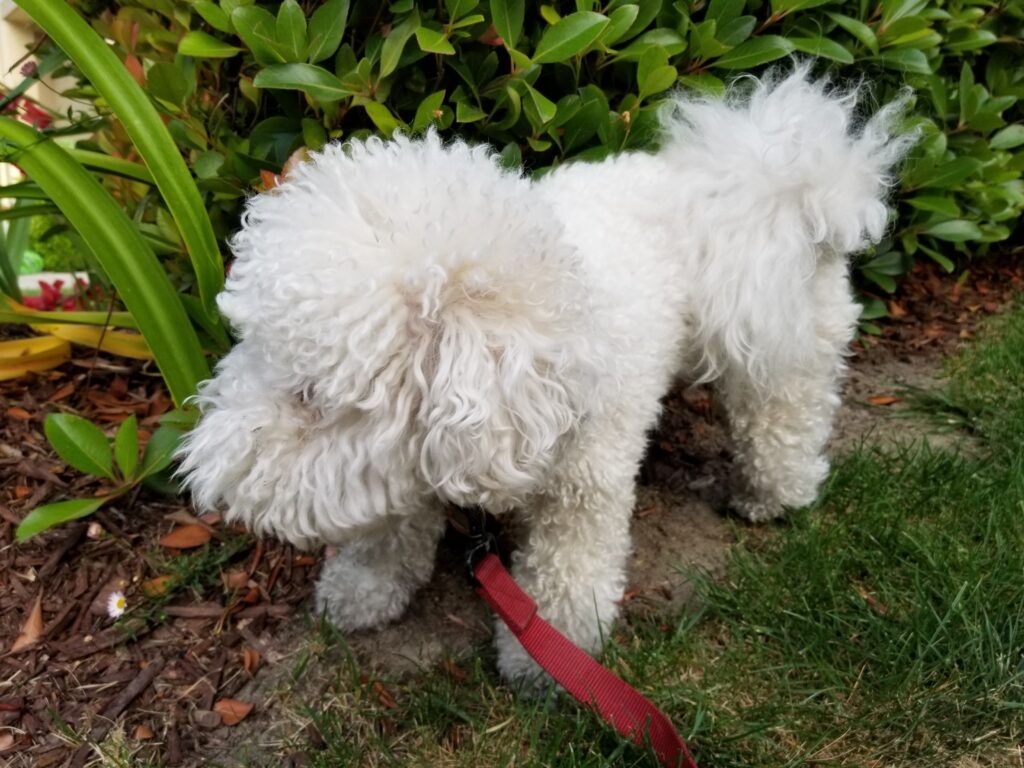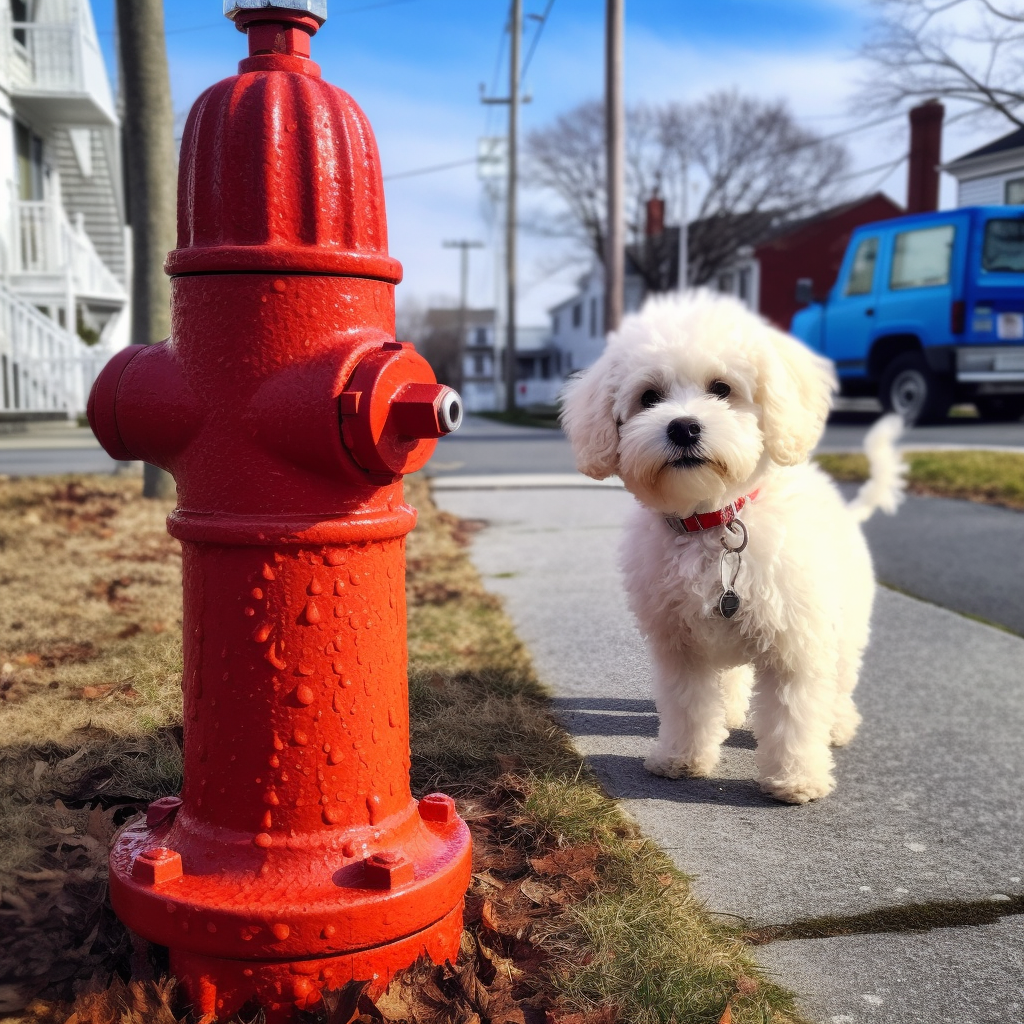It’s common for potential pet owners to question the ease or difficulty of house training a specific breed before bringing home a furry friend. If you’re considering a Bichon Frise, you may be wondering, “Are Bichons hard to house train?”
The answer can be a bit complex, as it depends on several factors including the dog’s age, temperament, and your commitment to training. However, there is some common understanding when it comes to Bichons specifically.
General Temperament of Bichon Frises
Bichon Frises are known for their friendly and cheerful demeanor. They love to play and interact with their owners and have an innate curiosity. These dogs are incredibly smart, which usually translates to a quicker understanding of house training. However, this intelligence can also mean they may be stubborn at times.
To be totally honest, that means that Bichons are often hard to house train. Of course, it depends on the dog. My dog Jack is 13 and hasn’t had an issue with house training in years. But my younger dog Lance never really “got it” and still has accidents in the house at age 5.
Consistency, patience, and positive reinforcement are key to successful house training, but even with that, some Bichons will have struggles.

Bichons and House Training: The Challenges
Why are Bichons hard to house train?
Well, for starters, there’s the stubbornness! Bichons may have no idea why they should go out in the dark to pee when there’s a perfectly good floor right in your house.
Bichons can also have physical challenges. This is due to their small size and a relatively small bladder, making them need to urinate more often. Bichons also tend to be more sensitive to weather conditions. They may be reluctant to go outside if it’s too cold, hot, or rainy, which can disrupt the house training routine.
My dog Max used to refuse to go outside any time it was raining. He would only go if his human was holding an umbrella over themselves, not necessarily over him!
Effective House Training Techniques for Bichons
The key to successfully house training a Bichon is consistency, understanding, and reward-based methods. It’s also recommended to start house training as early as possible.

Crate Training
Crate training is an effective method used for house training many dog breeds, Bichons included. A crate provides a personal space for your Bichon where they would not want to soil, therefore encouraging them to hold their bladder. It’s important to ensure the crate is a positive and safe place for them, never to be used as a form of punishment.
Regular Bathroom Breaks
Due to their small size, Bichons need to go to the bathroom more frequently than larger dogs. Regularly scheduled bathroom breaks, particularly after meals and naps, can aid in house training. As your Bichon puppy grows and their bladder control improves, you can gradually lengthen the time between bathroom breaks.
Reward-Based Training
Positive reinforcement is a powerful tool in any kind of training. When your Bichon successfully does their business outside, reward them with treats, praise, or a short playtime. This helps them associate going to the bathroom outside with positive outcomes.
Conclusion
While Bichons can be considered somewhat harder to house train compared to some other breeds, it is by no means an impossible task. With consistency, patience, and the right training methods, you can house train your Bichon successfully.
Remember, every dog is unique and might not strictly adhere to breed generalizations. It’s important to adapt your training techniques to suit your pet’s individual personality and needs.
